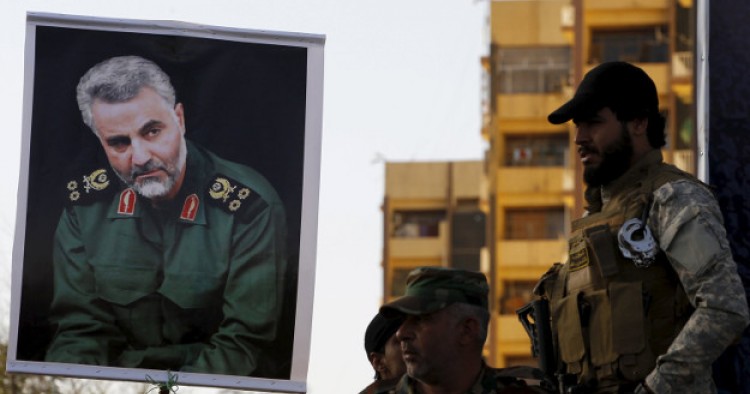The Islamic Revolution Guards Corps (I.R.G.C.) has been setting up new offices in Mosul, the capital of Iraq’s Nineveh Province, according to a report in Asharq al-Awsad. The report alleges that these offices are being established by the I.R.G.C.’s elite Quds Force under the guise of the Iraqi Popular Mobilization Forces (P.M.F.) and with the help of Iran’s ally and former Iraqi Prime Minister Nouri al-Maliki. Sheikh Muzahim al-Hawyeet, spokesman for a Sunni tribal coalition in Nineveh Province, told the pan-Arab daily that the aim of the new Quds Force offices is to cultivate relationships with Sunni tribes in Mosul and across Nineveh Province. Hawyeet further claimed that tens of I.R.G.C. offices have been set up in Mosul – some of which, he said, function as headquarters for local political parties while others house weapons and are used for military purposes and as detention centers. He also linked the issue with the upcoming elections in Iraq. “They [Iran and its Iraqi allies] are trying to get the largest number of parliamentary seats representing Mosul as well as to get the majority of seats in the city council.”
Asharq al-Awsat also quoted an unnamed P.M.F. official as saying that Iranian officials regularly supervise these offices and that Tehran has recently supplied P.M.F. with military equipment, including drones. The paper claimed that these are part of the I.R.G.C.’s broader efforts to have access to Syria through Mosul to continue supporting the embattled regime of Bashar al-Assad.
Comment: The Quds Force, which is responsible for the I.R.G.C.’s external operations, has played a prominent role in shaping up security and political dynamics in post-Saddam Iraq. Recently, Quds Force Commander Major General Qassem Soleimani and Iranian-supported militia groups within the P.M.F. have taken the lead in military operations against the Islamic State in western Mosul. Last summer, a P.M.F. spokesman confirmed Soleimani’s role in Mosul operations. “The presence of Brigadier-General Soleimani in the operations to free Mosul and Nineveh province is necessary and General Soleimani is the greatest advisor that has helped the Iraqi government in the war against the ISIL [Islamic State],” Ahmad al- al-Assadi told I.R.G.C.-affiliated Fars News Agency.
But with the Islamic State now on the brink of defeat in Iraq, Soleimani and his Iraqi allies have already turned their attention to undermine Iraqi rivals and influence Iraq’s politics to benefit Iran. Last month, Soleimani’s top aide, with three decades of experience in Iraq, began his new position as Tehran’s new ambassador to Baghdad. The I.R.G.C. and its Iraqi subordinates have also stepped up a propaganda campaign against American troops advising the Iraqi security forces.
The P.M.F.’s prominent role in military operations against the Islamic State – particularly in western Mosul – has been a matter of grave concern for Iraqi Sunnis and regional Sunni governments. They say Iran-backed sectarian Shiite groups may engage in revenge killing and other acts of repression against Sunni residents of Mosul after the ouster of the Islamic State from the region. Turkey, in particular, opposes P.M.F.’s participation in Mosul operations. Turkish President Recep Tayyip Erdogan recently called the P.M.F. a “terrorist organization” and criticized Iran’s “expansionist” policies in the region – drawing anger from the Iraqi government and P.M.F. leaders.
The P.M.F. consists of militia forces largely from Shiite but also other Iraqi ethnic and religious groups. While some P.M.F. units are Iraqi nationalists and follow Iraq’s top cleric Grand Ayatollah Ali Sistani, many prominent groups within P.M.F. have close ties with Soleimani. What makes Iraqi Sunnis and regional Sunni governments particularly worried is that, despite P.M.F.’s diversity, it is the Iran-backed militia units within the P.M.F. – such as Asaib Ahl al-Haq, Kata’ib Hezbollah – that are playing the most prominent role in western Mosul.
The Middle East Institute (MEI) is an independent, non-partisan, non-for-profit, educational organization. It does not engage in advocacy and its scholars’ opinions are their own. MEI welcomes financial donations, but retains sole editorial control over its work and its publications reflect only the authors’ views. For a listing of MEI donors, please click here.













